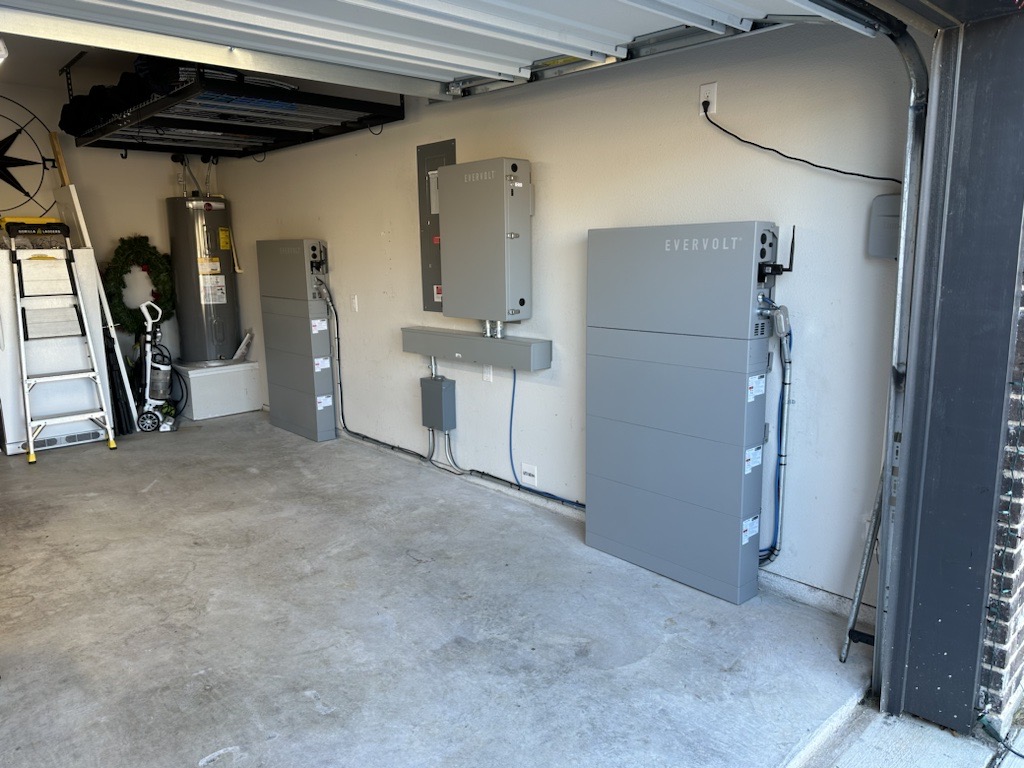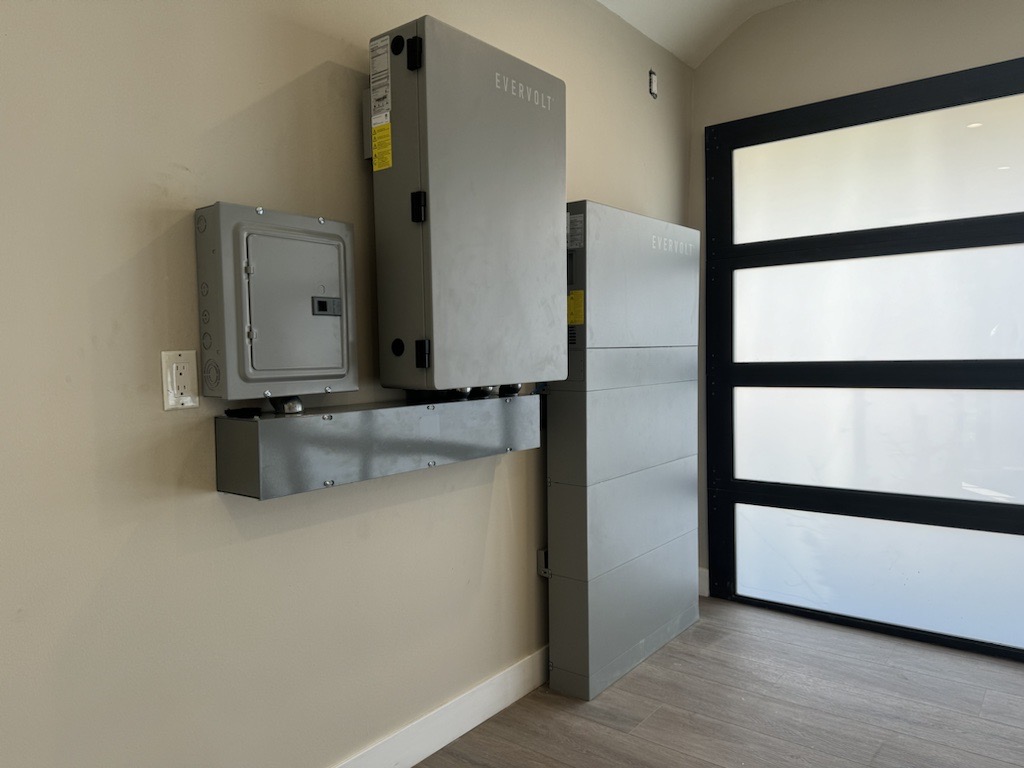AC- vs. DC-coupled home battery system: What you should know

AC- vs. DC-coupled home battery system: What you should know
Photo courtesy of Panasonic Eco Systems
If you're planning to invest in a home battery system, there are a few questions to consider. The first is what kind of battery system you're looking for and, in particular, whether it's AC- or DC-coupled. These terms refer to how a home battery is connected to solar panels. The main difference between the two is how efficient they are at converting electricity from your solar panels into power that is safe to use in your home.
Once your battery is installed, you won't notice much difference between an AC- or DC-coupled system. The choice you make will largely depend on when you choose to install a battery — such as whether it's onto an existing solar panel system or a new array — your budget and how much you plan to use your battery.
What are the differences between AC and DC?
AC stands for alternating current, or electric charge that moves forwards and backwards. AC electricity can easily travel over long distances, which means it's the most common type of power used in our homes. DC stands for direct current, where the electricity travels in one direction.
Solar panels generate DC electricity.his is also how most home batteries store it. Therefore, the power produced by your panels and stored in your solar battery needs to be converted into AC electricity before your home can use it. This conversion is done through a device called an inverter.
The biggest difference between AC- and DC-coupled battery systems is in these inverters and whether the electricity from your solar panels is inverted before or after it is stored in your battery, or both. Inverters are not 100% efficient, so every time your solar electricity is inverted, power is lost.
If you're using your battery every day — to charge your electric vehicle after work or avoid expensive time-of-use electricity rates — these power losses can add up, leading to less available electricity to run your home appliances.
Photo courtesy of Panasonic Eco Systems and Connected Technology
AC-coupled home battery systems
AC-coupled battery systems require two inverters — one for your solar panels and another for your battery. In an AC-coupled system, DC electricity flows from your solar panels to an inverter, where it is converted into AC power that can be used in your home. If you don't use it right away, it will instead pass through another inverter and into your battery for storage. When you then want to use this stored DC electricity, it is inverted again into usable AC power for your home. This means the power is inverted three times before it can be used, leading to electrical losses.
When is an AC-coupled system the right choice?
AC-coupled systems are less efficient than their DC-coupled counterparts. They are, however, easier to install on an existing solar panel system. They're flexible, which means it's relatively easy to expand the capacity of your system by installing more solar panels or adding a second battery. This makes them the best choice for homeowners who want to add a home battery to an existing solar array.
DC-coupled home battery systems
DC-coupled battery systems only need one inverter, known as a hybrid inverter. The hybrid inverter functions as an inverter for the electricity from your solar panels and for the electricity stored in a battery. In a DC-coupled system, DC electricity flows from your solar panels directly into your battery. When you want to use it, an inverter then converts this DC power into usable AC electricity for your home. This means the energy is converted from DC to AC just once, leading to about 5% less electrical loss than with AC-coupled systems.
Photo courtesy of Panasonic Eco Systems and Solar Price Discovery
When is a DC-coupled system the right choice?
The greater efficiency of DC-coupled systems means they are a great choice for homeowners who plan to install solar panels at the same time as a battery, or in the future. Hybrid inverters can be installed preemptively, so your installer can factor this into the design of your system if you think you may want to add a battery later. DC-coupled systems also have fewer components, minimizing the potential points of failure, reducing installation costs and taking up less space.
A DC-coupled system in action
Panasonic's EVERVOLT home battery system uses a hybrid inverter. It can pair with new solar panel arrays in a DC-coupled setup and it can integrate into existing solar systems using AC-coupling. EVERVOLT can also charge directly from the grid. This flexibility means you can participate in demand response programs and save money by storing power when grid electricity rates are low.
It can be challenging to choose the best battery for your needs, ensuring maximum power output at minimal upfront cost. Working with a reputable installer will ensure that your system is optimized to meet your energy requirements now and in the future, while staying within your budget. When you're ready to install a home battery system, a Panasonic expert can help you choose the solution that's best for you.
![]()













